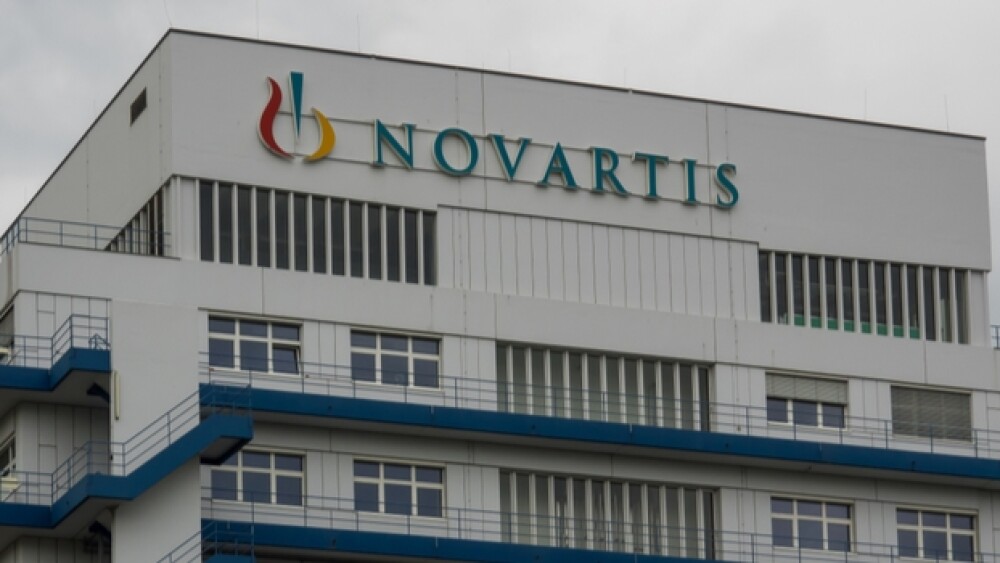Novartis announced that its Kisqali with endocrine therapy offered almost a year of progression-free survival (PFS) for an aggressive form of HER+/HER2- metastatic breast cancer.
Courtesy photobyphm/Getty Images
Novartis’ Kisqali, combined with endocrine therapy, offered almost a year of progression-free survival (PFS) for an aggressive form of HER+/HER2- metastatic breast cancer, the company announced Tuesday.
The RIGHT Choice Phase II study looked at Kisqali (ribociclib) with endocrine therapy (ET) versus combination chemotherapy (CT) as first-line treatment for pre- and perimenopausal patients with HER+/HER2- metastatic breast cancer, which also included patients with visceral crisis (severe organ dysfunction). The study showed an almost one-year PFS for the patient population.
“A diagnosis of metastatic breast cancer is devastating for patients, their families and loved ones. The prognosis of premenopausal patients is generally worse than that of postmenopausal patients and becomes worse when the disease presents with aggressive characteristics, such as visceral involvement to an extent that compromises vital organ function — what is known as visceral crisis,” a Novartis spokesperson told BioSpace.
The spokesperson added that “CT may be a preferred option recommended by international guidelines for this harder-to-treat, high-risk patient population, despite the widespread adoption of CDK4/6i plus ET as first-line treatment for HER+/HER2- MBC.”
Novartis stated the trial is the first randomized study to compare CDK4/6 inhibitors plus ET compared to combination CT in this aggressive form of cancer. CT is still the preferred treatment for this patient population, even though CDK4/6 inhibitors and ET are widely adopted for HR+/HER2- metastatic breast cancer.
“Younger patients with aggressive disease often show resistance to treatment, resulting in worse prognoses — so it is encouraging to see RIGHT Choice data demonstrating a significant one-year benefit,” said Yen-Shen Lu, M.D., Ph.D, division chief of medical oncology at the department of oncology, National Taiwan University Hospital in a statement.
Lu also noted that patients in the Kisqali arm had lower numbers of adverse events compared to chemotherapy, stating that “oncologists should consider ribociclib plus ET as a treatment option for patients with aggressive forms of HR+/HER2- MBC, including patients with visceral crisis.”
RIGHT Choice enrolled 222 patients with aggressive HR+/HER2- metastatic breast cancer, including those with symptomatic visceral metastases, rapid disease progression or symptomatic non-visceral metastases.
The Novartis spokesperson said the trial “demonstrates that Kisqali plus ET has a statistically significant nearly one-year PFS benefit over combination CT” for this patient population.
Per the National Comprehensive Cancer Network (NCCN) guidelines, Kisqali is the only CDK4/6i with overall survival benefit in first-line HR+/HER2- advanced breast cancer. It also has the highest rating for a CDK4/6i on the ESMO Magnitude of Clinical Benefit Scale.
The drug has been approved in more than 95 countries for treating HR+/HER2- advanced or metastatic breast cancer in combination with either an aromatase inhibitor or with fulvestrant as initial ET therapy or after disease progression on ET.
In 2021, Kisqali brought in $931 million in sales. That was a 36% increase from 2020. And in the second quarter of 2022, Kisqali was a bright spot in an otherwise soft quarter. It was the company’s only precision oncology therapeutic to hit double-digit sales growth compared to the previous year’s second quarter, hitting $308 million, up 37%.
In terms of next steps, the Novartis spokesperson said the company is implementing a strategy with “a clear focus on five therapeutic areas for investment” with “multiple significant in-market and pipeline assets in each of these areas.”
“Kisqali forms one of the eight current in-market brands with a multi-billion dollar peak sales potential,” the Novartis spokesperson added.





